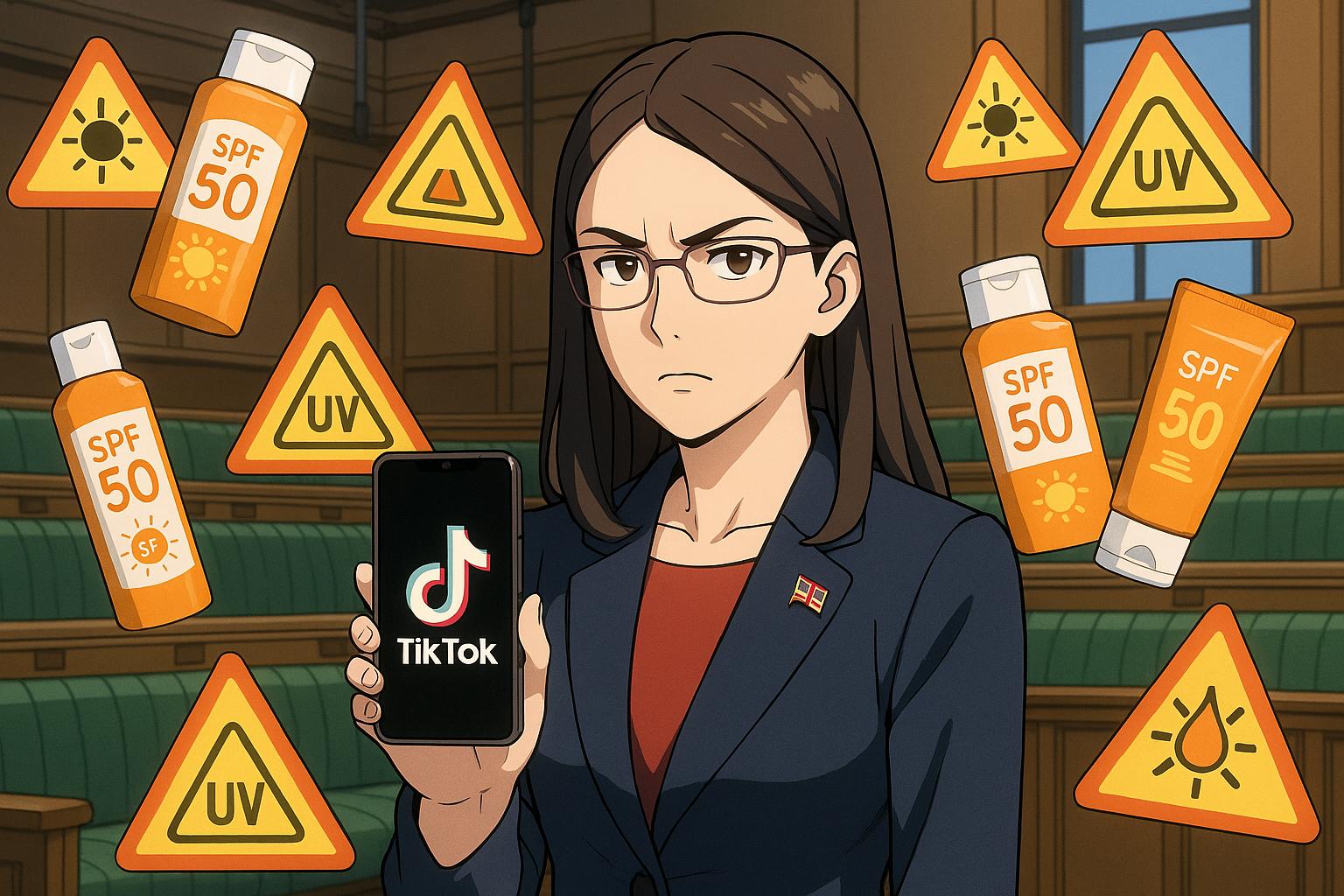Social media influencers known for promoting anti-sunscreen messages and endorsing potentially harmful tanning products are facing increased scrutiny from Members of Parliament (MPs) in the UK. A parliamentary inquiry is poised to delve into the activities of TikTok and Instagram personalities who frequently engage in paid promotions while neglecting to disclose the associated health risks. This inquiry emerges in response to a rising anti-sunscreen rhetoric proliferating on platforms like TikTok, where viral posts have controversially likened sun protection to "rubbing cancer into your skin."
Labour MP Carolyn Harris, who chairs the All-Party Parliamentary Group on Beauty and Wellbeing, emphasised the importance of public awareness regarding the dangers of UV radiation, underscoring that the push for a crackdown aims to educate the public on the dangers of excessive sun exposure. "It is vital that the public understands the dangers of UV, and the risks they are taking to get a tan," Harris stated. The inquiry will not only scrutinise misleading claims made by influencers but also address how to effectively inform the public to prevent a potential health crisis.
The British Beauty Council supports this initiative, highlighting that misinformation and disinformation abound across various media platforms with scant accountability or recourse. The inquiry seeks to empower the Advertising Standards Authority (ASA) with the authority necessary to confront the "dangerous" narratives propagated by certain influencers, a sentiment echoed by various health experts who caution against the DIY sunscreen recipes circulating online, which may fail to provide adequate protection against harmful UV rays.
In an age where influencer marketing significantly shapes consumer behaviour, concerns extend beyond the beauty industry into financial realms. The UK's Financial Conduct Authority (FCA) has recently issued warnings to financial influencers to comply with advertising rules when promoting financial products. With the emergence of 'finfluencers'—social media personalities who offer financial advice—there is a strong impetus to ensure that promotions are clear and that risks are adequately communicated.
The FCA's rigorous scrutiny has resulted in the removal of approximately 10,000 misleading adverts in the previous year alone. This proactive approach reflects a growing recognition of the influencer's role in consumer decision-making, particularly among younger demographics who increasingly trust their guidance. Non-compliance with these regulations can lead to severe penalties, including criminal prosecution, reinforcing the necessity for influencers to act responsibly.
In tandem with the inquiry into anti-sunscreen narratives, the ASA is ramping up its efforts to hold influencers accountable for misleading advertising. Reports indicate that the watchdog has begun to name and shame influencers who consistently breach advertising guidelines, particularly regarding transparency in paid promotions. Chief Executive of the ASA, Orla Twomey, highlighted the simple yet crucial requirement for influencers to disclose commercial content clearly, asserting that this transparency is vital for maintaining audience trust.
With the potential health risks linked to unregulated influencer messages growing increasingly urgent, the UK government and its regulatory bodies are facing a moment of reckoning. Ensuring that consumers are protected from misinformation, whether it be about skincare or financial products, has become a pressing priority. The inquiry and subsequent regulatory responses serve as critical reminders of the responsibility borne by those who wield influence over vast online audiences, necessitating both ethical standards and protective measures to safeguard public health and informed decision-making.
As this narrative unfolds, it will be essential to monitor the developments arising from the proposed parliamentary inquiry, as well as the wider implications for social media regulation across all sectors, presenting a compelling case for sharper guidelines and increased accountability in the influencer marketing landscape.
Reference Map:
- Paragraphs 1-3: Lead Article
- Paragraphs 4-5: Related Article 2
- Paragraphs 6-7: Related Articles 3 and 4
- Paragraph 8: Related Articles 5 and 6
Source: Noah Wire Services
